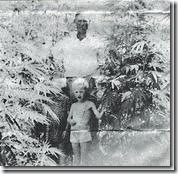 Justice Dept. Right Not to Challenge State Laws Legalizing Marijuana
Justice Dept. Right Not to Challenge State Laws Legalizing Marijuana
Bowing to changing times and admittedly limited prosecutorial resources, the Justice Department announced last week that it would not seek to block state laws legalizing marijuana for medical and recreational use. The declaration represented a major reversal from the department’s previous position that marijuana is a dangerous drug that the government is obligated to go after under federal law regardless of what state legislatures do. The policy shift unveiled Thursday inevitably will change the conversation about marijuana use in America, and it’s likely to have important legal and social consequences as well going forward, not all of them predictable. But it was nevertheless the right decision.
Eighteen states, including Maryland, and the District of Columbia now have laws decriminalizing possession of small amounts of pot for medicinal purposes.
Two more, Colorado and Washington, recently legalized the drug for recreational use as well. Despite the fact that federal law has not changed, the Justice Department clearly saw the handwriting on the wall. Henceforth, marijuana policy increasingly will be made in state capitals rather than by lawmakers in Washington, with the federal government’s role largely reduced to oversight rather than enforcement.
Proponents of legalizing marijuana hailed the announcement as a major step toward ending all restrictions on the drug. That’s unlikely to happen any time soon, however, given that President Barack Obama has said he opposes lifting the federal ban on pot, and Congress is unlikely to push the issue.
The more probable outcome of the department’s shift in policy is that the country will embark on something in the nature of a national experiment regarding marijuana use and its public health and safety consequences. Eventually, that may lead to some kind of consensus about aspects of the drug’s use that should be regulated or controlled even if it is no longer banned.
Some outlines of such a possible consensus are already coming into view. It’s inconceivable, for instance, that even states that decriminalize the drug for medical or recreational purposes ( or both ) wouldn’t impose strict limits to keep it out of the hands of children, similar to the restrictions that now apply to alcohol and tobacco sales.
Similarly, there would also have to be some kind of uniform regulatory system to protect consumers against tainted or counterfeit products, and rules prohibiting false or misleading advertising as well as guidelines for when and where such products can be marketed. These are all problem states would have to work out for themselves, with the federal government keeping a close eye on whether they are effective in terms of public health and safety.
Obviously, the Justice Department also has a huge interest in seeing to it that any relaxation in state drug laws doesn’t open the door for criminal organizations to profit from illegal sales of smuggled contraband. One of the arguments often given in favor of legalization is that it would allow states to increase revenues by taxing marijuana sales.
But that supposed boon would quickly evaporate if state and federal authorities allowed a flourishing black market in the drug to continue.
And while supporters of legalization claim that lifting the ban on marijuana would drive today’s bad actors out of business, the lessons gained from past experience of efforts aimed at clamping down on illegal sales of cigarettes and booze are hardly encouraging.
Still, there’s no doubt that Americans’ attitudes toward marijuana are changing rapidly.
Many experts, including Attorney General Eric Holder, now recognize that the so-called “war on drugs” the nation has waged over the last three decades has been in many ways counterproductive, filling state and local prisons with hundreds of thousands of low-level, nonviolent drug offenders who then become a permanent drag on the economy when their criminal records prevent them from obtaining gainful employment on release.
The relentless focus on arresting and imprisoning people for possession of small amounts of marijuana has torn apart millions of minority and low-income families and shredded the social fabric of their communities.
America obviously can’t continue along that self-destructive path, but the drive for change will have to come from the states rather than from the federal government. The Justice Department has now acknowledged that it needs to get out of the way so that can happen, and one can only hope the conversation about pot that ensues will produce a way out of the country’s current dilemma sooner rather than later.
Source: Baltimore Sun (MD)
Copyright: 2013 The Baltimore Sun Company
Contact: [email protected]
Website: http://www.baltimoresun.com/









